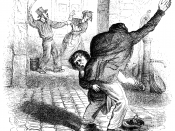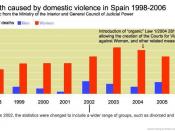According to the U.S. Department of Justice, over 354,000 children are kidnapped by a parent each year in divorce custody disputes. Some of the children are recovered or returned quickly while others may be on the run for years. Unfortunately many of these children are never found. Generally, people are concerned with the traumatic effects of these events on the child involved. However, both the searching parent and the abductor have many pending issues with which to deal. Some people believe that children 'kidnapped' by their own parents are the lucky ones. In fact, because revenge is often the driving force for these abductions, the child may become subject to physical, sexual and mental abuse.
While 'When Families Are Torn Apart,' is written by Mary Morrissey, the majority of the article is quoted from Geoffrey Greif and Rebecca Hegar. In the article, Greif and Hegar explain how they attempted to fill in the gap of information about the trauma of long-term abduction.
Their findings appear in the book When Parents Kidnap. Each parent, child, and abductor may deal with the kidnapping differently. For some it is very frightful and requires years of psychological evaluation to overcome. According to Greif and Hegar, abducted children develop extremely close bonds with their abductors. Often the abductors lie to the children about the other parent. They may say that the other parent does not want the child or is dead. The longer the child is away the harder it is for everyone involved. At these times, professional help is strongly suggested.
Issues for Parent
÷ their own feelings about the abduction
÷ helping them to be able to care for the child
÷ helping them to bring the whole family together
÷ helping them to help readjust the other children
÷ helping them to...



CHild Psych Essay
Thanks so much!
This essay was just what I was looking for.
2 out of 2 people found this comment useful.